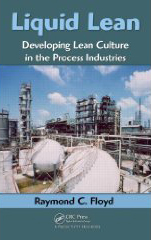Body
 |
Shingo Prize application guidelines include:
- Business results
- Consistent lean enterprise culture
- Continuous process improvement
- Cultural enablers
…
Want to continue?
Log in or create a FREE account.
By logging in you agree to receive communication from Quality Digest.
Privacy Policy.
Add new comment